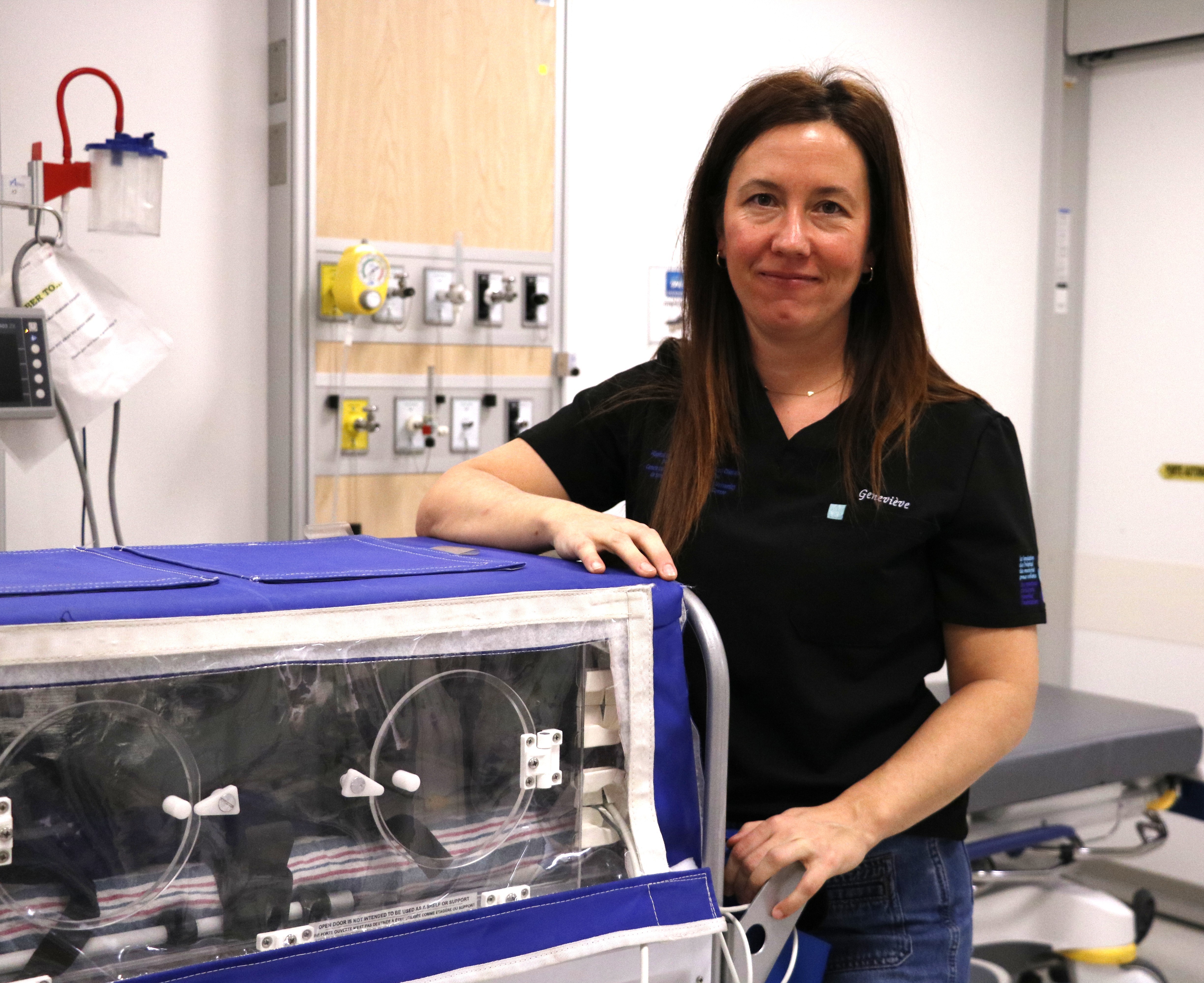
Celebrating Critical Care Transport Nurses at the MCH
18 February 2026
Rise in respiratory infections and measles outbreak: important infection prevention measures at the Montreal Children’s Hospital.
Read moreWelcome to the Montreal Children's Hospital

16 December 2015
MONTRÉAL, Dec. 16, 2015 /CNW Telbec/ – As we approach the holiday season, Montréal’s health and social services facilities have come together to remind the population of prevention measures to take, resources available in the community, and steps to take before going to an emergency department. The holiday season is a time for get-togethers and gatherings of all sorts; this results in increased numbers of flu and gastroenteritis cases in late December and early January. Most children and adults who go the city’s emergency departments for problems related to the flu, gastroenteritis and fever have mild flu-like symptoms. In addition to spreading the virus, increased visits put a strain on emergency departments which leads to longer waiting times, especially for non-urgent cases.
Care at home: Often the best solution
“It’s important that parents prepare for the flu season by learning how to keep their kids healthy, how to treat minor injuries and ailments at home, and when to see a doctor or go to the emergency department. Children requiring urgent care are given priority. However, any patient who comes to the emergency department with a cold, flu or gastro can expect to wait several hours before seeing a doctor. Whether you’re a child or an adult, mild flu symptoms, gastroenteritis and fever that generally last 3 to 5 days can be treated at home. Emergency services are reserved for those whose conditions require urgent care,” says Dr. Antonio D’Angelo, chief medical officer of CHU Sainte-Justine’s Emergency Department. “If you have the flu, drink a lot of water and rest. You can also ask your pharmacist for advice on how to relieve your symptoms,” he adds.
“Preventive measures such as vaccination and using good respiratory hygiene are two of the most effective ways to reduce the number of unexpected visits to emergency and avoid long wait times during the busiest time of year,” says Dr. Harley Eisman, director of the emergency department at the MUHC’s Montreal Children’s Hospital’s. “Avoid contributing to the spread of influenza and gastroenteritis by washing your hands regularly, coughing or sneezing into your elbow, staying home when you’re sick and avoiding contact with vulnerable people.”
Vaccination: The most effective way to prevent the flu
“There’s still time to get vaccinated and protect yourself against the flu and its complications, as recommended in the Programme d’immunisation du Québec. The flu vaccine is especially recommended for people who are vulnerable because of their age or a health condition,” explained Dr. Carole Morissette, chief medical officer of the Infectious Diseases Prevention and Control Sector at Direction de santé publique de Montréal. She would also like to remind everyone that the flu vaccine is available across Montreal, in most medical clinics, from your family doctor, in CLSCs and some pharmacies. “To find a vaccination clinic near you, visit our Web site at santemontreal.qc.ca/externe/hiverensante/en.
Alternatives to the ER
Dr. François Loubert, family doctor at Clinique médicale Angus, recommends the following: “If you’re sick or worried about the health of a loved one, first call Info-Santé at 811. Info-Santé nurses are available 24/7 to advise you and tell you when and who to consult. You can also contact your family doctor, one of the five Centres intégrés universitaires de santé et de services sociaux (CIUSSS) in Montréal, or a network clinic to see a doctor without an appointment. Pharmacists are also excellent resources for information.”
To check the opening hours for network clinics and CIUSS in Montréal, go to the portal at www.santemontreal.qc.ca/hiverensante. The CHU Sainte-Justine and Montreal Children’s Hospital’s websites also offer advice and information to help parents better assess the health of their loved ones. See chusj.org/en/Home or thechildren.com/
Source:
Montréal health and social services facilities:
SOURCE Centre intégré universitaire de santé et de services sociaux du Centre-Sud-de-l’Île-de-Montréal (CIUSSS)
For further information: Medical issues : Mélanie Dallaire, Senior Media Relations Consultant, CHU Sainte-Justine, 514-345-7707; Stephanie Tsirgiotis, Communications Officer, Montreal Children’s Hospital, MUHC, 514-528-4400, ext. 23870; Geneviève Bettez, Media relations team, Centre intégré universitaire de santé et de services sociaux de l’Est-de-l’Île-de-Montréal, 514-251-4000, ext. 2526; Public health issues : Monique Guay, Assistant to the CEO, Public Affairs, CIUSSS du Centre-Sud-de-l’Île-de-Montréal, 514-593-2118